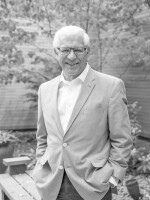Cuba is a mere 90 miles from the United States, a puddle-jump flight or a long swim across the straits of Florida. Yet, for more than a half-century, that distance at times has loomed much greater, as U.S.-Cuba tensions played out across the world stage and here at home. That situation is changing – and dramatically so.
Last December, after 18 months of secret talks, President Obama ordered the restoration of full diplomatic relations with Cuba and the opening of an embassy in Havana. The news sparked intense reactions and a flurry of speculation.
Our guest, Julia E. Sweig, has been part of that national conversation.
Sweig is a scholar specializing in Latin America and a senior research fellow at the Lyndon B. Johnson School of Public Affairs at the University of Texas at Austin.
Previously, she was with the Council on Foreign Relations, where she served as a senior fellow and director for Latin American Studies.
Sweig is the author of Cuba: What Everyone Needs to Know, published by Oxford University Press.
Now out in an updated second edition, the book offers readers a succinct and insightful survey of Cuba’s history and politics, from the days of Spanish colonial rule, through Fidel Castro and the Cuban Revolution, to the Cuban Missile Crisis and Cuba’s contemporary leadership under Fidel’s brother, Raúl.
Copyright 2015 Boise State Public Radio




